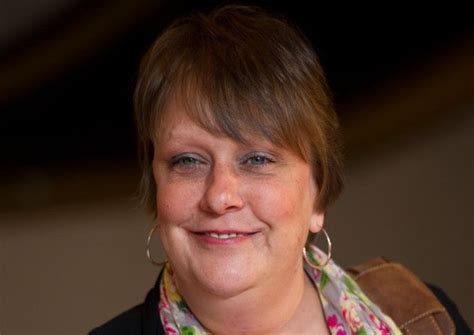A Quote by Elizabeth Vargas
Were way overdue on a woman sitting in one of those Big Three chairs.
Related Quotes
I walked down the hall and saw that [she] was sitting on the floor next to a chair. This is always a bad sign. It's a slippery slope, and it's best just to sit in chairs, to eat when hungry, to sleep and rise and work. But we have all been there. Chairs are for people, and you're not sure if you are one.
Americans have a taste for…rocking-chairs. A flippant critic might suggest that they select rocking-chairs so that, even when they are sitting down, they need not be sitting still. Something of this restlessness in the race may really be involved in the matter; but I think the deeper significance of the rocking-chair may still be found in the deeper symbolism of the rocking-horse. I think there is behind all this fresh and facile use of wood a certain spirit that is childish in the good sense of the word; something that is innocent, and easily pleased.
We no longer think of chairs as technology, we just think of them as chairs. But there was a time when we hadn't worked out how many legs chairs should have, how tall they should be, and they would often "crash" when we tried to use them. Before long, computers will be as trivial and plentiful as chairs and we will cease to be aware of the things. In fact I'm sure we will look back on this last decade and wonder how we could ever have mistaken what we were doing with them for "productivity"
In Hong Kong, in our generation that started out in the 1970s, being a director wasn't a big deal. We didn't even have director's chairs. We weren't particularly well paid. The social standing of a film director wasn't that high. It was a sort of a plebeian job, a second or third grade one. And the studio heads are always practical, there's never any fawning because someone is a director. There's very little snobbery about one's position as a director. The only ones people treated differently were those that were also stars; or the directors who also owned their companies.
The woman's bill of rights is, unhappily, long overdue. It should have run along with the rights of man in the eighteenth century. Its drag as to time of official proclamation is a drag as to social vision. And even if equal rights were now written into the law of our land, it would be so inadequate today as a means to food, clothing and shelter for woman at large that what they would still be enjoying would be equality in disaster rather than in realistic privilege.































